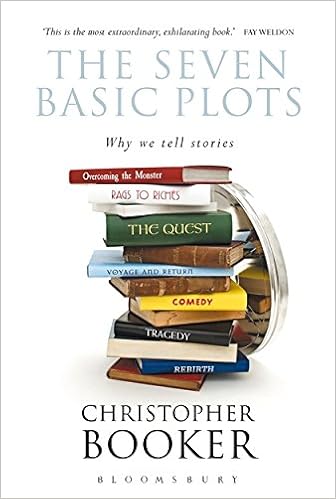I have lost 15 pounds. WIN. I have learned to be outside by myself for long periods of time without pouting. WIN.
Most importantly, we walk with Jesus, and with him everything is the ultimate WIN. We will see him face to face. He will make everything good.
The summer has been unusual and stunning so far. There has been some rain every day, or so it seems. The lawns are more lush than ever. Perhaps in England around the Queen's palaces they look this green. All the trees and bushes that have made it through the winter (with quite a lot of winter kill on them), are recovered and growing furiously. What a sight to behold. Very nice. Very, very nice.
OK. All that. But I have also had time to read, and I just want to at least list the books for my own memory. I notice that the majority were non-fiction books written by women. Lets start with the most recent book: "The Last Closet. The Dark Side of Avalon". The last closet refers to the stories of children raised by adults who practiced sexual licence including forms of LGBTQ. Moira Greyland suffered through a horrendous childhood, including trials such as incest and other physical and emotional abuse. She is the daughter of a very famous science fiction writer and and famous numismatic. The read was enlightening and heart-rending. She does not wallow in her emotions and thus the book remains sturdy, precise, honest and thorough. We can only imagine half of it. But we should read it and consider the early sexualization of children raised in such families and the harm that is inflicted. Five stars for gargantuan effort of truth-telling around a highly controversial and difficult topic where speakers are routinely shouted down, threatened and isolated.
![The Last Closet: The Dark Side of Avalon by [Greyland, Moira]](https://images-na.ssl-images-amazon.com/images/I/51HbktWZQoL.jpg)
Before that I read: "Maid", which I bought at Costco. It is the first oeuvre, an auto-biography, of a young, aspiring writer, a single mother struggling to raise her very young child by herself and make ends meet with very little social and financial support, living in the Pacific North West of the United States. It is a testament to our times and ways of thinking. She finds a way to move to Missoula and become a student at University. Very engaging story. Very good writing! Well done!
The book leaves a lot of questions unanswered which revolve around the open relationships young people tend to have nowadays, the legacy of divorce in families, the legions of people working for low pay, the complexity of social welfare programs in the United States, and many more... Things we should be talking about. Five stars for courage, hard work and successful book.
![Maid: Hard Work, Low Pay, and a Mother's Will to Survive by [Land, Stephanie]](https://images-na.ssl-images-amazon.com/images/I/41MHHbzqivL.jpg)
Before this book, I read the famous Blaise Pascal, finally. He had been on my list-to-read for a long time. This is the book I got from Amazon.

Peter Kreeft is a type of teacher on Pascal. He provides lengthy comentary on a selection of Pensees. They are all very helpful,deep, current, and enjoyable. I read the book in short selections at bedtime, and they actually helped me go to sleep well, unlike some dramatic kinds of fictional stories. In this way, it took a while to get through and digest. There are some important thoughts for life here. I passed on the book, but I think I need to get another copy to read again and underline. Even though the book is written and edited by Roman Catholics, a Lutheran can still get a lot out of it. Pascal was a lay-theologian, so he reminds one a bit of C.S.Lewis. They are not so very systematic, in any case. And by the way, Blaise Pascal is the male writer in this list. Timeless work. Five stars.
Before that I read a book that I also got off Amazon: "The Wonder Years. 40 women over 40."

Later life for women is not often covered in a positive way in any sorts of media, if at all. Where is the woman over 40 or post menopause to get some feedback, guidance and inspiration? I do think there is a dearth of literature. Perhaps, that is why I have been focused on non-fiction by women, as of late. The woman in later life, most positively seen, is hoped to be the source of feedback, guidance and inspiration. Since my own mother died quite young, I have not had her to lead me into this time of life. There are lovely ladies at church who can inspire, but there are more deep and intimate things that you don't discuss outside the circle of close relations, though the church ladies are pretty much as close as it can get and you can see them regularly. Still it is the highlight of my life when my circles of girlfriends get together for birthdays and we can find out about each other's lives. This book was a great idea. The writers are greatly varied in their life experiences and also their writing experiences. It is not as deep and intimate or spiritual, as what I personally need. It just shows that some things can only be worked on in lived experience and not so much in books. Five stars for effort and great concept tackling a neglected subject. I was introduced to this writing group through a Facebook advertisement for a writing retreat. I thought I might be interested in attending it, but then, upon some reading, I thought I would be considered too confessional for the group to really belong. I could be wrong.
Can confessional Christians belong to a writing group about women's lives and stories? Theoretically, they can.
Before that, I read a whole series by Sharon Garlough Brown titled: "Sensible Shoes". I had taken out the second book in the series from a church library, and then I felt I had to read the whole the set.

I really did love the books about various women's lives and spiritual journeys. The women become a close-knit group through the exercises they experience through a retreat center and unlikely friendships blossoming. They grow meaningfully through life experiences, their friendships and spiritual exercises. I could see that these books could be tremendously helpful to many individuals. Personally, I did not see myself in these women, as the aging, long-married woman rarely seems to figure in any books. I tried to lend this set to my sister-in-law but she complained that the books go back and forth from woman to woman every few pages and it was driving her crazy (to use her words). I thought, with the lack of really crazy things going on, only the daily horrors of divorce, trials of delivering pre-mature babies, and other women-related drama, the movement from person to person was very engaging. I liked the format. What drove my sister-in-law crazy kept me on tenterhooks. Different strokes for different folks.
OK. That's enough for now. I am sure there were others that I have read in these fair months of the year. Presently I am reading a book from Indigo on "Everyday Narcissism", also by a woman writer. So far I am not sure what to make of it... Reading it at bedtime bit by bit. Mostly, I see, I have been heavily weighted in American women writers. I think I should should look for something from another country next.
Have a fabulous rest of the summer!


























